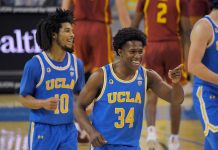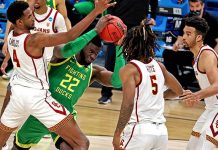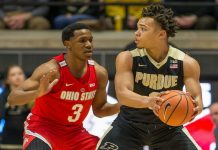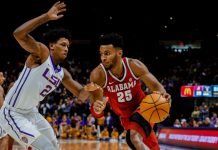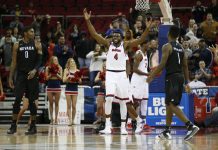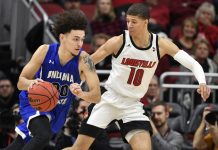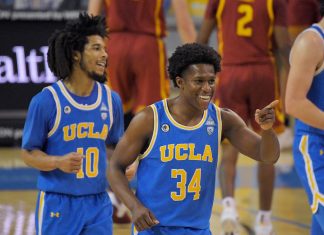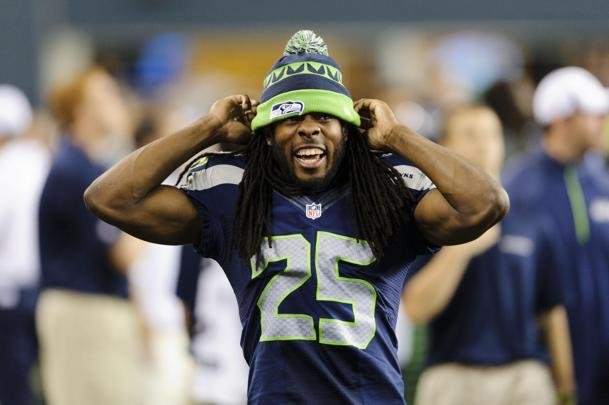From the top seed in the NCAA Tournament – Virginia – to those that barely made it into the bracket – Arizona State and Syracuse – it feels as though everyone involved in March Madness is on the bubble this year.
College basketball is in trouble.
The brackets came out Sunday, replete with the usual fanfare. Villanova, Kansas and Xavier joined Virginia as No. 1 seeds, but they, along with the other 64 contenders, will play against the backdrop of an investigation-riddled season in which bribes and payoffs made bigger headlines than 3s and layups.
The tournament begins Tuesday with opening-round games featuring a matchup of bubble teams UCLA and St. Bonaventure, then kicks into full swing Thursday and Friday at eight sites around the country.
The Final Four is March 31 and April 2 in San Antonio. Shortly after that, a commission led by former Secretary of State Condoleezza Rice is expected to deliver recommendations from an investigation triggered by an FBI probe that led to charges last fall against assistant coaches, agents, employees of apparel companies and others.
No fewer than a dozen of the 68 teams in the tournament have been named either in the FBI investigation or in media reports that allege coaches and others have directed payments and improper benefits to recruits and players – thus, breaking rules that go to the core of the amateur-sports code that defines and regulates both the NCAA and the ”student-athletes” who make this billion-dollar business run.
They range from teams that made it into the tournament off the so-called bubble – Alabama – to one of the best teams in the country. Arizona, a No. 4 seed in the South, has been roiled by a report that wiretaps caught coach Sean Miller discussing a $100,000 payment to freshman Deandre Ayton. Miller has strongly denied the accusation, though the story line figures to follow the Wildcats through what could be a long run in the tournament.
The chairman of the NCAA selection committee, Bruce Rasumussen, has said the investigations played no part of the bracket-filling process.
And yet, it’s hard to imagine there weren’t some sighs of relief in the NCAA offices when some bubble teams’ names were left out of the field. For instance, Louisville has lost its coach (Rick Pitino), athletic director (Tom Jurich) and latest national title (2013) in the culmination of scandals that have slammed that program for the better part of this decade.
Still, given the widespread nature of this corruption, there’s at least a chance that whoever cuts down the nets in San Antonio could suffer the same fate as the Cardinals.
More certain is that once this party is over, change of some sort will be coming.
”I don’t think it’s just going to be a little blip on the radar,” said John Tauer, the coach at St. Thomas in Minnesota, who doubles as a social psychology professor. ”I think this runs deep enough and involves enough people in programs that something’s got to change.”
—
For more AP college basketball coverage: http://collegebasketball.ap.org and http://twitter.com/AP-Top25
25% Bonus via Western Union


